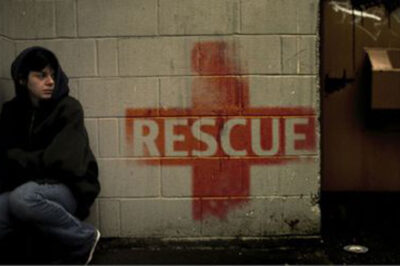I found myself speaking at a conference in Greece around the time that a little girl named Madeline went missing in Portugal. Her picture was plastered across the TV, in airports and in magazines—Interpol was searching for this little girl everywhere.
I was, of course, very saddened by the disappearance of a little girl, but I didn’t know her. I hadn’t met her. My sympathies were aroused, but what could I do? The true interruption came during a mundane moment when I was waiting for my bag at an airport terminal. I saw the posters of Madeline that I had seen before, but then I saw a second poster for another girl that was missing. This child was named Sophia—the same name of my second daughter.
Suddenly these missing children weren’t numbers. They weren’t posters, and they weren’t statistics. They were real—someone’s daughters. Someone’s sisters and classmates.
I stopped and began to wonder if that was my Sophia on that poster, what wouldn’t I do to find her? What wouldn’t I give up to see her safe? The closest I’ve ever come to a situation like that was when we lost Sophia once in London for about five minutes. But even for that brief time, I ran around screaming like a mad woman. I didn’t care who looked or who saw; I would have given everything I had in that moment to rescue that one who was missing.
I later found out that these children were the alleged victims of human trafficking, something that at that time I didn’t even know existed. I assumed that the slave trade was abolished with William Wilberforce, but I was dead wrong. On my watch, in my generation, the current state of slavery has been flourishing in the dark rooms of the world. With all our great Christian gatherings, our tremendous churches, our wealth of worship songs and resources, right now in the 21st century, there are more slaves on earth than ever before. It was incomprehensible to me.
How could this be true? How could this happen in our day? How could the gospel have spread and flourished in so many areas and yet not made a massive dent in something as simple and insidious as slavery? Yet it’s true. During our day, more people are being trafficked and sold for labor or sex than ever before in human history.
This is unacceptable not merely from the standpoint of human rights; it’s unacceptable from the standpoint of the teaching of Jesus. We could point to any number of Scriptures that tell us this, but the one that continues to interrupt me is found in Luke 10, beginning in verse 30:
“Then Jesus answered and said, “A certain man went down from Jerusalem to Jericho, and fell among thieves, who stripped him of his clothing, wounded him, and departed, leaving him half dead. Now by chance, a certain priest came down that road. And when he saw him, he passed by on the other side. Likewise a Levite, when he arrived at the place, came and looked, and passed by on the other side. But a certain Samaritan, as he journeyed, came where he was. And when he saw him, he had compassion. So he went to him, and bandaged his wounds” (vv. 30-34).
The text goes on, but the key phrase for me continues to be how Jesus described the Samaritan. He “had compassion” on the one who was in great need. We might be tempted to equate compassion with getting sad watching a movie or hearing a story. That’s not compassion; that’s sentiment. Compassion isn’t compassion until you are actually interrupted. It’s not real until it inspires action.
It was the action, not the sentiment, that separated the Samaritan from the others. The Levite and the priest might well have been very nice people. Religious even. Perhaps they were even that day hurrying to one or another of their religious activities.
I had the sudden realization that though I’ve always thought of myself as a Samaritan, my inaction revealed me to be much more like the two other figures who passed by. They were so busy going to their next religious service that they walked past the very people God sent them into the world to reach.
Sound familiar? It certainly does to me. For the priest and Levite, and for many of us, people like this man in the ditch are distractions to the ministry. But to God, they are not the distraction; they are the object.
That being the case, here’s the poignant question for all of us: What are you going to do, Christine? Are you going to walk past on the other side, hurrying to your next event, or are you going to cross the street and actually get involved? This was my moment to decide if these people, scattered throughout the world, were going to be people with names and faces or if they were going to turn into just another pair of empty shoes.
With knowledge comes responsibility. We know the slave trade is alive and well right now. We know this, and because we do, we are responsible to do something about it. In our choice about whether to cross the road, we must begin by realizing that at one point or another, we were the one lying in the ditch and Jesus crossed the road for us.
This article is an excerpt from Louie Giglio’s new book Passion: The Bright Light of Glory, released Feb. 25.
Christine Caine is an Australian pastor, activist, evangelist and speaker and the director of Equip and Empower Ministries. With her husband, Nick, she founded the A21 Campaign to fight modern-day human trafficking. Her latest book is Undaunted: Daring to Do What God Calls You to Do.







Leave a Comment
You must be logged in to post a comment.